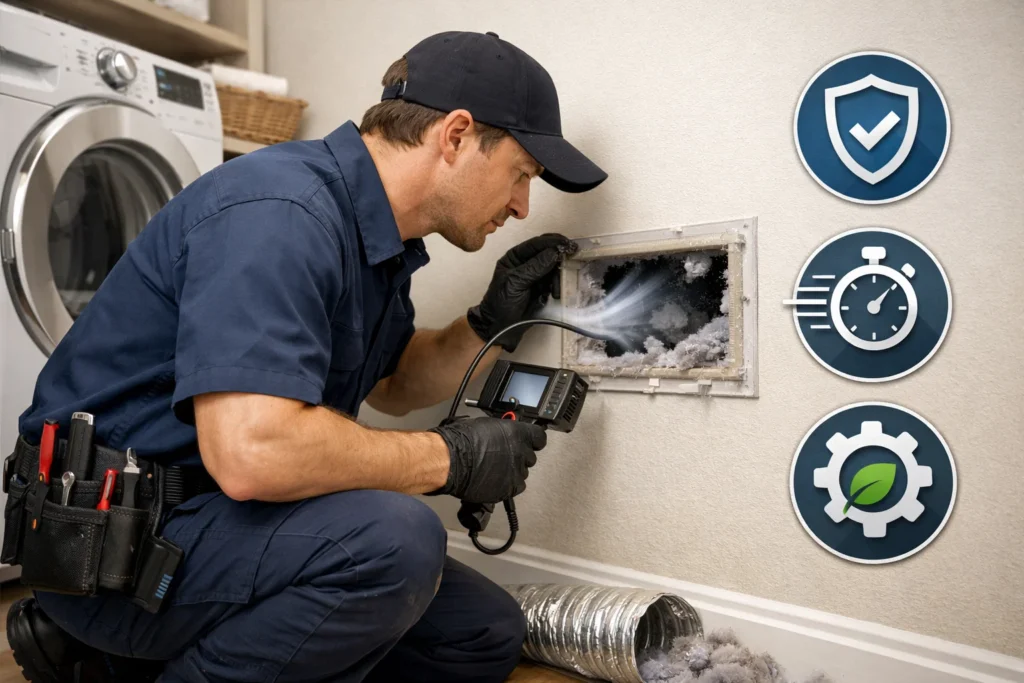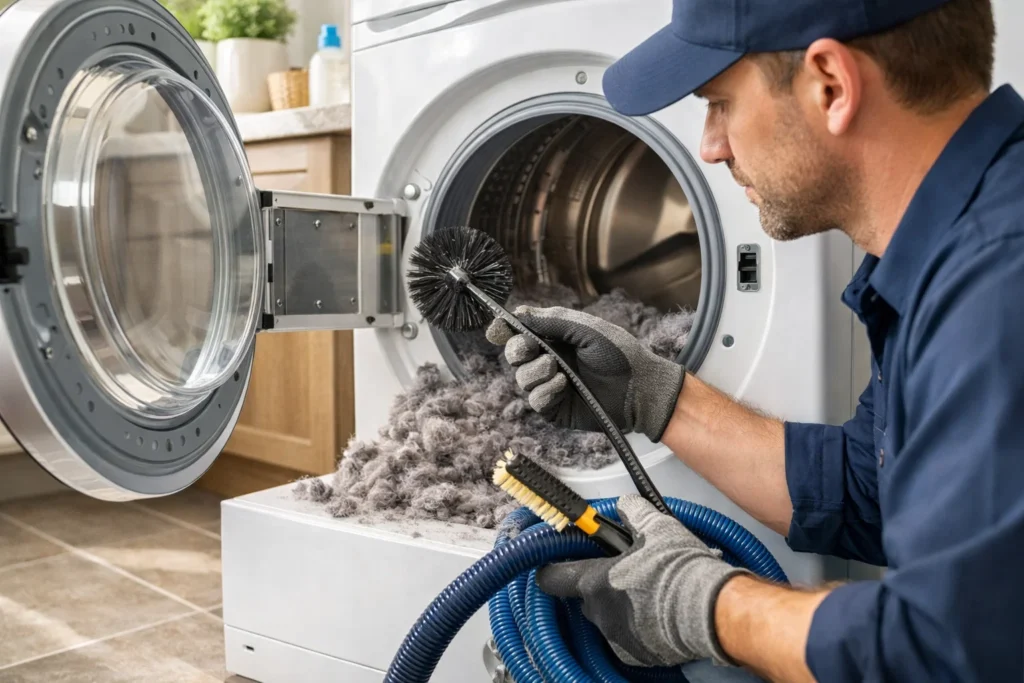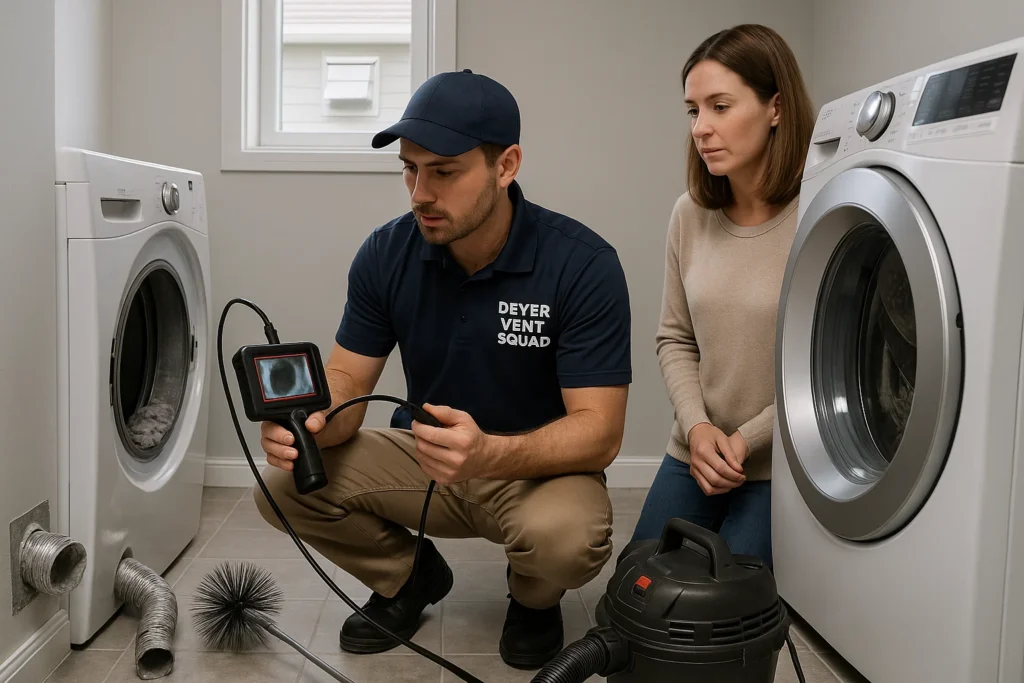Clogged drains are a common household problem. Whether it’s a backed-up shower, a slow-draining sink, or a toilet that is not flushing, the first instinct for clog removal is to reach for a plunger or a chemical cleaner. But wait! Improper clog removal can damage your pipes badly. It seems exciting to DIY for small household issues, but a minor blockage can quickly become a major plumbing issue if you use the wrong tools, products, and methods.
How can incorrect clog removal go wrong?
If you are still thinking, can incorrect clog removal damage your pipes? The simple answer is yes. It can cause more harm to your pipes than good.
Now let’s have a look at how it can go wrong.
1. Using harsh chemical drain cleaners
When a clog occurs, chemical cleaners might seem like the easiest fix, but they are one of the most harmful products. They contain powerful ingredients like sodium hydroxide or sulfuric acid to clear clogs, but they not only break down the clogs, they also damage PVC and metal pipes over time.
If they are overused, they create brittle spots that can cause a pipe burst. They are particularly dangerous for older pipes. And the chemical fumes are harmful to both human health and the environment.
2. Improper use of a snake or an auger
Drain snakes are very useful tools for hair clogs or deep blockages. But if you use the wrong size, twist it aggressively without knowing where the clog is, or are too forceful, it can damage your pipes. It can scratch or puncture your pipes and dislodge joints or seals inside the pipe. If you are not experienced or trained, a simple clog removal can escalate to a pipe repair job.
3. Using high-pressure water wrong
Hydro-jetting is a highly effective method for clog removal, but it is not safe if done incorrectly. It forces water through pipes at very high pressure to break down clogs. But too much pressure can weaken old pipes, or it can cause flooding if water is forced back through the system. Professional plumbers know how much pressure your pipes can handle, which homeowners often don’t.
4. Disassembling pipes without knowing the system properly
Sometimes homeowners start to remove a pipe section under the sink or in the basement to clear clogs. This might seem easy, but it can also be risky if you do not reseal the joints properly, or you might misalign the flow of the system. If you are unfamiliar with your home’s plumbing layout, you can cause long-term issues accidentally during clog removal.
Safe practices to avoid pipe damage during clog removal
If you are still determined to remove the clog yourself, follow the following precautions to minimize the risk of pipe damage.
- Natural solutions: Try out natural solutions first, like a mixture of baking soda and vinegar, followed by hot water. This will break down the organic matter and clear the pipe without any damage to your pipe.
- Right tools: Use the right tools for clog removal. Make sure to use the right size and type of tool for your specific pipe. Do not force it, and if it resists, back off.
- Overuse of chemicals: Avoid the use of chemical cleaners multiple times in a row. If the clog is still there after one use, try some other approach.
- Call the professionals at the right time: If the clog is too deep and is recurring after multiple fixes. Stop DIY and call the experts.
Common signs that you’ve damaged your pipe during clog removal
It is not always obvious, but some signs show that there is something went wrong:
- Leaks under or around your toilet
- Recurring clogs in the same drain
- Gurgling or hissing noises
- Water pressure changes
- An unpleasant odor is coming from your drains
If you notice any of these symptoms after clog removal at home, call the experts to assess the situation.
Conclusion
In short, clog removal is more than just removing a blockage; it is about protecting your pipes while removing it. However, DIY methods are quick and cost-effective, but a small wrong approach can lead to long-term damage and expensive repairs. If you are dealing with frequent clogs and are not sure what to do, call the professionals. It will save you from future plumbing disasters.
FAQs
Can clog removal cause permanent pipe damage?
Yes, if you use harsh chemicals frequently or use plumbing tools incorrectly. It can lead to corrosion, cracks, or even complete pipe failure.
Is hiring professionals always necessary for clogs?
Not always. Minor issues can be cleared at home. But for deep issues, it is best to call professionals.
What happens if you leave a drain unclogger in too long?
It can cause damage or deterioration to your pipes, leading to leaks or pipe failure.




